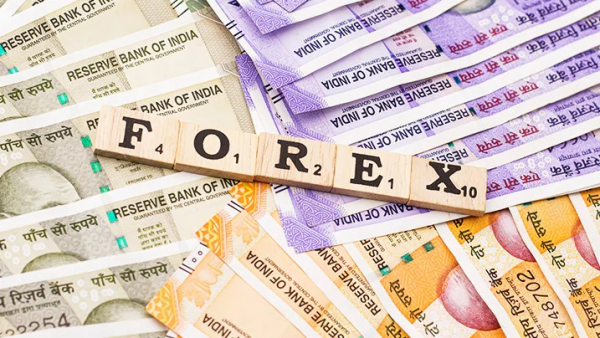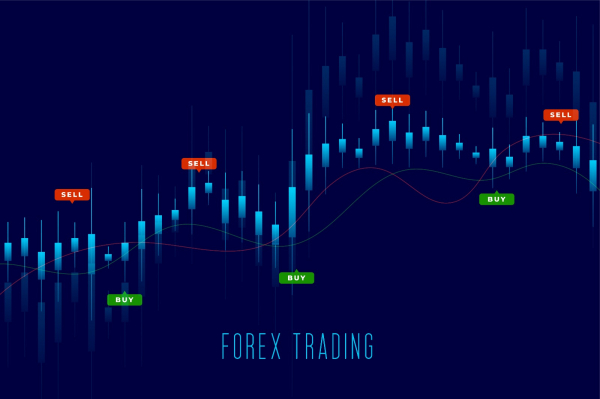How to do forex trading in India: A Beginner’s Guide
- by B2B Desk 2024-06-24 10:02:38
Forex trading involves purchasing and selling currencies in order to make money. Currency trading takes place constantly throughout the week in the biggest and most liquid financial market worldwide. In India, the rules for forex trading are set by the Reserve Bank of India (RBI) and the Securities and Exchange Board of India (SEBI).
Beyond speculative trading, forex is also used strategically for hedging purposes. Hedging in the forex market is employed by individuals and businesses to shield against adverse currency movements, which are referred to as currency risk. This strategic approach helps protect investments and business operations from potential financial losses due to fluctuating exchange rates.
For instance, businesses involved in international activities might utilize forex trading strategies to reduce potential losses caused by changes in currency exchange rates. By engaging in proactive forex dealings, these organizations can lock in beneficial exchange rates early on, reducing the possibility of financial instability. This proactive strategy helps businesses to cultivate greater predictability in their domestic currency, improving overall financial stability by increasing profits or reducing expenses.
Utilizing forex trading for hedging is extremely critical for global businesses, offering them a strategic tool to strengthen their financial strategies and navigate the challenges of global markets more confidently.
How to do forex trading in India: Understanding and adhering to RBI and SEBI regulations are crucial for conducting forex trading activities in India effectively.
Understanding the How Forex Works in India
Forex trading in India is not completely approved. You can only engage in trading currency pairs that involve the Indian Rupee (INR). The main cause for this limitation is the weakness of the Indian Rupee (INR) in comparison to the United States Dollar (USD). When Indian traders want to obtain the currency, they have to obtain USD from the Central Bank of India.
If you are an Indian resident, you are able to participate in forex trading on the NSE, BSE, and MSE. Founded in 1992, SEBI was created to oversee and control foreign exchange operations in India. It is an independent body that safeguards forex securities issuers, investors, and forex-related entities. In India, SEBI mandates that Forex brokers and stock exchanges must have a license to conduct business.
What are some of the main features of the foreign exchange market in India?
Transactions are inexpensive: Due to the reduced expenses of online Forex trading, even novice investors can make a profit. Forex traders, as opposed to other investment options, simply require a small fee. This commission pertains specifically to the spread, which is the discrepancy between the purchase and sale prices of a currency pair.
Increased Leverage:In the forex industry, traders can utilize margin to trade by borrowing money from a broker. Because of the rapid growth in the rate of return on your investment, the value of your investment is substantial. Given the high unpredictability of the Forex market, significant losses may occur when utilizing leverage (loaned funds) if the market shifts in the contrary direction.
Exceptionally Transparent: In the Indian foreign exchange market, traders can easily access all the necessary market data and information to carry out transactions as it is a transparent market. Traders in the open market have increased authority over their investments and can make more informed decisions using the provided information.
Convenient access to the Forex Market: If you have an internet connection, you are able to log into your foreign currency trading account from any location. You have the ability to trade at any time and in any location of your choice.Traders in the Forex market can conveniently place trades whenever they want, giving it an edge over other markets.
How To Start Forex trading in India
Here are some steps to help you get started:
Learn about forex: You possess the fundamental ideas, but you must grasp additional terminology and the functioning of the forex market. This involves understanding currency pairs, analyzing market trends, and recognizing the variables impacting currency values.
Develop a trading strategy: Acquire knowledge of diverse trading approaches, including various technical analysis methods, fundamental analysis, and news trading. Select a plan that matches your trading preferences and willingness to take risks.
Develop a plan: Develop a trading strategy outlining your objectives, risk tolerance, tactics, and evaluation criteria for trades. The key is not only creating a plan but also adhering to it during the intensity of trading when emotions are heightened. Traders who are disciplined tend to be successful in trading.
Set up a brokerage account: Choose a broker under the supervision of a well-known financial regulator, like the Commodities Futures Trading Commission (CFTC) in the U.S. Verify that the broker provides an easy-to-use trading platform, excellent customer service, and competitive fees. Check out our top Forex Brokers for inspiration.
Practice with a demo account: Several forex platforms offer the opportunity to simulate trading without using actual money prior to switching to live trading. This stage enables you to fine-tune every aspect of your trading method and evaluate how well your strategies are working. Identifying and fixing mistakes in this practice session is a much better option than potentially losing money when trading with actual funds.
Start slowly: Once you are comfortable with practicing trading, transition to trading with actual money. Begin by starting with a small amount to minimize risk and then slowly increase your trading size as you become more experienced.
Stay on top of your holdings: Make sure to consistently monitor your positions and verify that there is sufficient funds in your account. Utilize stop-loss and take-profit orders for risk management and profit protection.
Monitor and adapt: Stay informed about market updates, economic indicators, and geopolitical events that could impact currency values. Get ready to modify your approaches as market circumstances shift, as this is different from constantly changing your strategy with each price fluctuation.
Advantages and Disadvantages of Forex Trading
Advantages:
High Liquidity: The forex market is incredibly liquid, facilitating seamless currency trades with trillions of dollars exchanged daily. This ensures traders can buy or sell currencies easily without worrying about sudden price swings or finding counterparties.
24-hour Market: Forex operates around the clock, five days a week, allowing traders worldwide to participate at any time, regardless of their location or local time zone. This flexibility is advantageous for those who prefer trading outside traditional market hours.
Disadvantages:
Limited Regulations: While forex trading is legal in India, regulations are not as stringent compared to some other countries. This can make it challenging for traders to find trustworthy brokers and ensure their investments are adequately protected.
Lack of Transparency: The decentralized nature of the forex market means there is no central exchange where all transactions occur. This lack of a unified pricing mechanism can make it difficult for traders to ascertain the true market value of currency pairs and verify the fairness of prices offered by brokers.
High Risk: Forex trading inherently involves significant risk, and traders may lose their entire investment if risk management strategies are not implemented effectively. The availability of high leverage further amplifies this risk, potentially leading to substantial losses if trades move against expectations.
Final thoughts
Trading in the foreign exchange market presents the opportunity for substantial gains, however, it also comes with significant dangers. Traders across the globe find the foreign exchange market appealing due to its immense size, high liquidity, and availability 24 hours a day, 5 days a week. Nonetheless, inexperienced traders may face substantial losses due to the inherent volatility, leverage, and complexity of forex trading.
Forex trading in India: In order to excel in forex trading, you need to acquire a thorough understanding of market dynamics, economic principles, and technical analysis. Properly sizing positions and setting stop losses are crucial for managing risk. Traders must also stay alert to the numerous scams that are prevalent in the forex market.
Newcomers to forex trading should begin by gaining a strong education, utilizing demo accounts for practice, and only investing funds they are willing to lose. Collaborating with a reliable, properly monitored broker and having practical expectations are equally important.
FAQs
Q. How to do forex trading in India?
A. How to do forex in India: To trade forex as a resident of India, you will either be working with a SEBI-regulated broker that offers exchange-traded currency derivatives or with a foreign broker (preferably regulated and trustworthy) that offers retail forex from a margin account.
Q. Which broker is legal for forex trading in India?
A. The analysis includes apps like Zerodha, Upstox, Angel Broking, 5paisa, Motilal Oswal, ICICI Direct, HDFC Securities, Sharekhan, Axis Direct, and IIFL Securities. These platforms are not exclusively for forex trading but allow trading currency derivatives on NSE and BSE, the legal avenues for forex trading in India.
Q. Which currency is best for forex trading in India?
A. EUR/USD (nicknamed fibre) has the highest trading volume among all currency pairs in the Forex market. Traders can invest in the largest economies with this pair, the American and European economies. This currency pair is influenced by the changes in the value of the Dollar and Euro.
Q. What are the rules of forex trading in India?
A. Forex trading is not illegal, but SEBI and RBI highly regulate it. You can only trade in four currency pairs with the INR as the base or the quote currency. You also need to use a SEBI-registered broker or an authorised dealer to trade legally in forex in India.
Also Read: YouTube Music to launch AI chatbot 'Ask for Music' feature
POPULAR POSTS
Rupee Forecast 2025: Key Drivers Behind INR Weakness Against the US Dollar
by Shan, 2025-08-11 07:32:23
August 2025 IPO Preview: Big Listings from JSW Cement, NSDL, Knowledge Realty & SME Stars
by Shan, 2025-07-30 11:51:27
Ola Electric Q1 Results FY26: Revenue Falls 61%, Net Loss at ₹870 Cr - MoveOS 5 in FocusOla
by Shan, 2025-07-14 12:22:55
HAL, BEL & Data Patterns: 3 Defence Stocks Riding India's ₹50,000 Cr Export Ambition
by Shan, 2025-06-26 10:00:16
India GDP Forecast 2025-26 Raised to 6.5% by S&P: Key Drivers & Global Risks Explained
by Shan, 2025-06-26 10:30:46
Dalal Street Outlook: 5 Key Market Triggers to Watch This Week
by Shan, 2025-06-16 12:32:04
What is the Bond Market & How Does It Impact Your Investments?
by B2B Desk, 2025-02-05 09:42:55
RECENTLY PUBLISHED

Loan EMIs to Drop as RBI Slashes Repo Rate - Full MPC December 2025 Highlights
- by Shan, 2025-12-05 11:49:44

Pine Labs IPO 2025: Listing Date, Grey Market Premium, and Expert Outlook
- by Shan, 2025-11-05 09:57:07

The Agentic Revolution: Why Salesforce Is Betting Its Future on AI Agents
- by Shan, 2025-11-05 10:29:23

Top 10 Insurance Companies in India 2026: Life, Health, and General Insurance Leaders Explained
- by Shan, 2025-10-30 10:06:42

OpenAI Offers ChatGPT Go Free in India: What’s Behind This Big AI Giveaway?
- by Shan, 2025-10-28 12:19:11

Best Silver Investment Platforms for 2025: From CFDs to Digital Vaults Explained
- by Shan, 2025-10-23 12:22:46




 Subscribe now
Subscribe now 